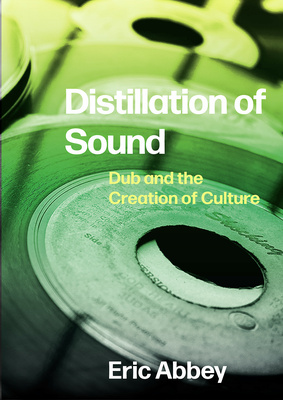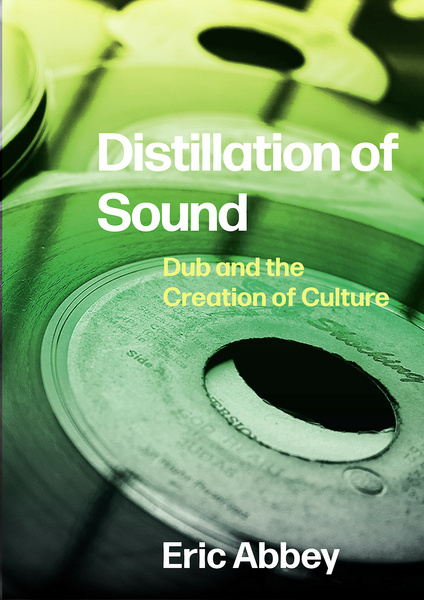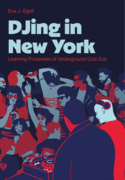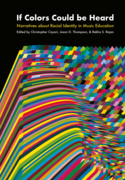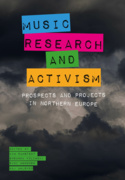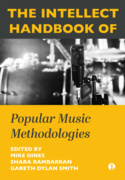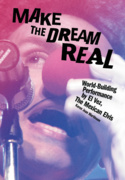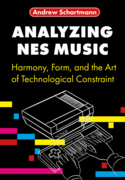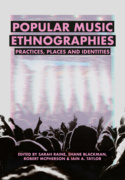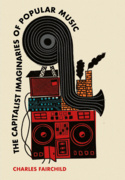Distillation of Sound (Book)
Dub and the Creation of Culture
Distillation of Sound traces the beginnings of dub music in Jamaica and how the culture is distilled throughout the world. It focuses on the analysis of some of the most famous full-length albums of dub music and how the engineers, producers, and musicians created a new sound that changed the way that people heard music. 15 b/w illus.
Edition
Distillation of Sound focuses on the original music of Jamaica and how, through dub reggae, Jamaican culture was expanded and shifted. It will further the discussion on dub music, its importance to Jamaican culture, and its influence on the rest of the world.
Dub music in Jamaica started in the early 1970s and by the end of the decade had influenced an entire population. The music began to use the rhythm track of a song as a song itself and spread quickly throughout the sound systems of the island. The importance of dub music and its influence on the music world frames the discussions in this new book. How dub travelled and distilled to three places in the world is covered in chapters focussing on the rise and spread of dub in New York City, in England and in Japan.
Abbey discusses the separation between dub as a product and dub as an act of the engineer. Codifying these two elements, and tracing them, will allow for a more definitive approach to the culture and music of dub. To define it, and its surrounding elements, five of the first albums produced in the genre are discussed in three parameters that help to define and set up the culture of dub music.
The albums discussed are Java, Java, Java, Java (Impact All Stars), Aquarius Dub (Herman Chin Loy), Blackboard Jungle Dub (Lee ‘Scratch’ Perry), The Message Dubwise (Prince Buster), King Tubbys Meets Rockers Uptown (Augustus Pablo).
From the Preface:
‘Jamaican music has always been about creating with what is at hand. Taking what is around you and making it into something great is the key to dub and Jamaican culture. This attitude is what this project is about. There is not enough written on the music that has inspired and influenced so many people around the world and this is an addition to the conversation. Dub music fixates on the engineer as a musician and, in doing so, allows for the creator to interact with echnology. Through this, the mixing board and other electronic elements become musical instruments. Now, these technologies are dominant in contemporary music and allow for people to easily create in their own homes. Without the engineers and musicians in the following work, these changes and shifts in technology and music would not have occurred.
Dub is also a refiguring of already existing music. What this demonstrates is that music is ever evolving and can be shifted through technology. It also suggests that recorded music can always be modified and expanded upon. In our contemporary world, this modification is seen every day online and in people’s daily lives. Dub created a way to view these changes through music. The influence of technology in the development of culture is the key to this work and to our development in society. How technology can be modified, changed, and evolved through the interaction of the engineer is the focus of this project.
This work will further the importance of dub music and culture in our society. The definition and distinction between version and dub is also an important element in the following work. Jamaican music needs to be discussed more for its influence and creative force in the entirety of the music world.
The author is a professional musician with the groups J. Navarro & the Traitors, Detroit Riddim Crew, and 1592 and a producer of dub, reggae and ska, and a professor of English and literature at Oakland Community College in Michigan, USA.
Genuine popular and academic appeal. Will appeal to students and scholars of music and Jamaican culture – and to academic libraries. Has genuine popular appeal to those with an interest in Jamaican culture and music.
Eric Abbey, Ph.D. is a professor of English and literature at Oakland Community College outside of Detroit, MI, USA. He is also a professional musician and producer of dub, reggae and ska music.
Acknowledgements
Preface
Introduction
Chapter 1 – Version and Dub: The Distinction Within Reggae
Chapter 2 – Java, Java, Java, Java and Aquarius Dub: The Start of a Culture
Chapter 3 – Blackboard Jungle Dub and the Splicing of Culture
Chapter 4 – The Message Spreads: Prince Buster and the Sound of Jamaica
Chapter 5 – How It All Began: King Tubby and the Sound of Dub
Chapter 6 – The New Sound: England and the Spread of Culture
Chapter 7 – Dub in New York City and the Hip Hop Generation
Chapter 8 – Japan and the Rising Sound of Dub
Chapter 9 – Distillation of Sound
Endnotes
References
About the Author
Index
'Distillation of Sound serves as a great introduction to dub as a musical practice and music culture. Although Abbey’s work primarily stems from a musicological and aesthetical analysis perspective, the references to the equipment used in the studios during the production of the records discussed are always interesting. [...] An important contribution to the study of dub music and its cultural impact. Abbey’s passion for the subject is evident throughout, and his detailed analysis of key records and figures in the genre brings new insights into the world of dub. Music scholars, fans of dub and those interested in the interplay between music and technology will undoubtedly find much to appreciate in this insightful work.'
'In Distillation of Sound: Dub and the Creation of Culture, Eric Abbey provides a rich account of the beginnings of dub from the studios and streets of Jamaica, through its development with the advancement of recording technology, and its “distillation,” or global adaptation, in London, New York, and Japan. [...] Distillation of Sound is well thought out and well researched. Abbey draws from established cultural and music theorists (e.g., Raymond Williams, Simon Frith); Jamaican music scholars (Marvin Sterling, Michael Veal); published interviews (with Erroll Thompson, Dennis Bovell); and his own interviews with producers (Lee “Scratch” Perry, Adrian Sherwood, among others), sound system operators (Tony Myers), and Jamaican cultural and music scholars (Donna Hope, Sonjah Stanley Niaah). In short, Distillation of Sound serves as a reader’s guide to a genre that has been incredibly influential despite its relatively small following. Anyone interested in dub would do well to seek it out.'
‘This is an engagingly written, detailed and deeply intelligent analysis of dub music from its inception through to its worldwide distillation. Abbey’s deep knowledge of the technology involved is displayed in a natural and effortless discussion of the creation of dub.’

